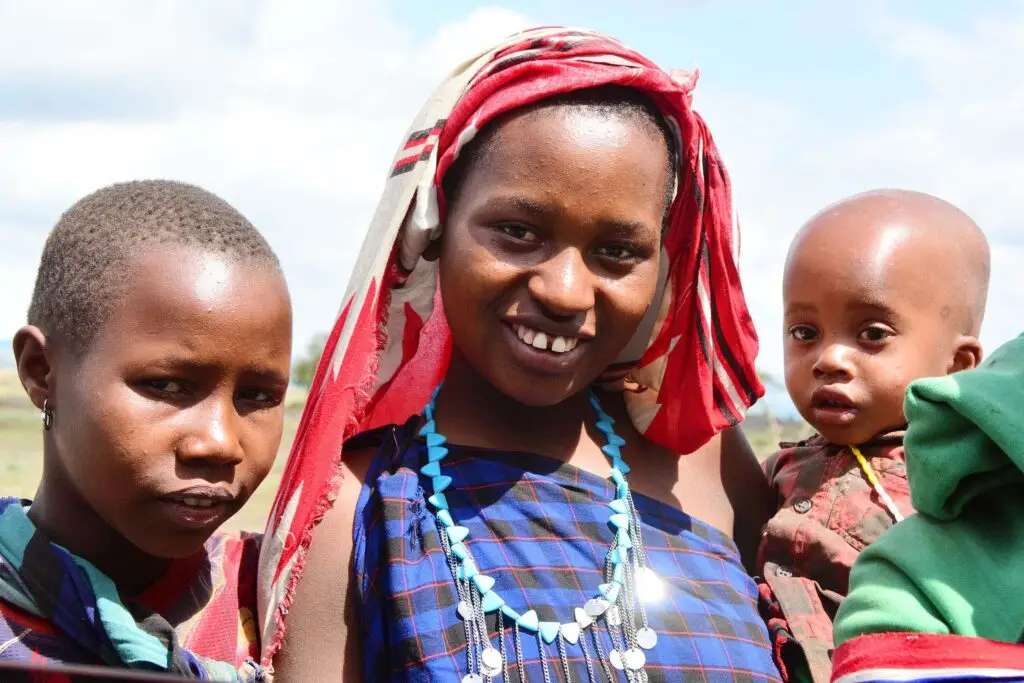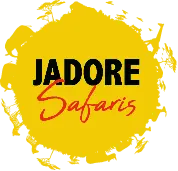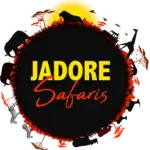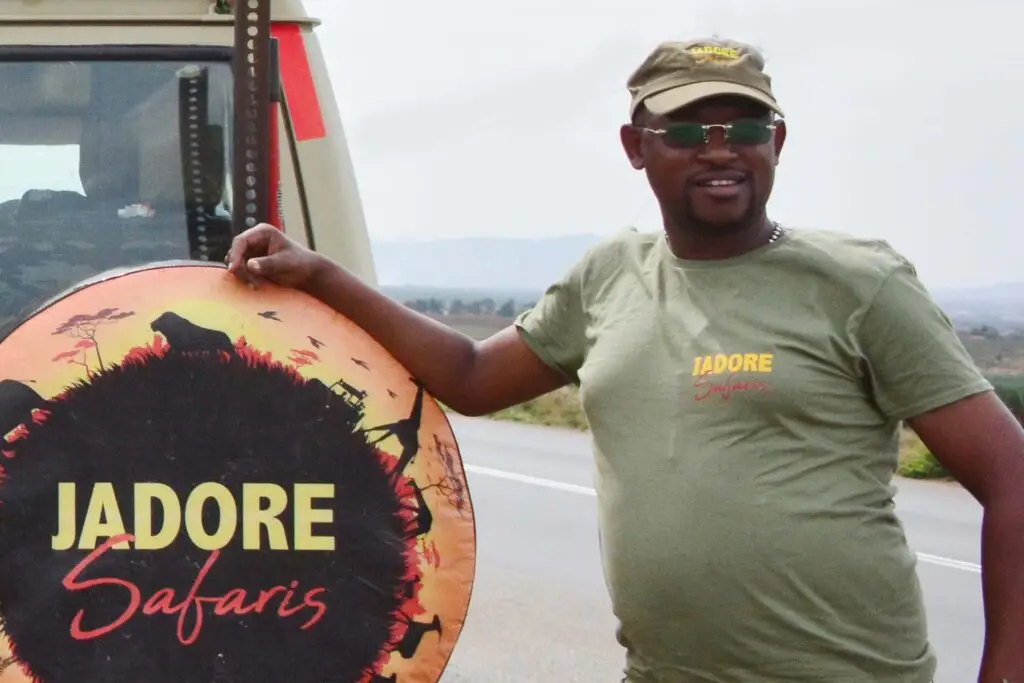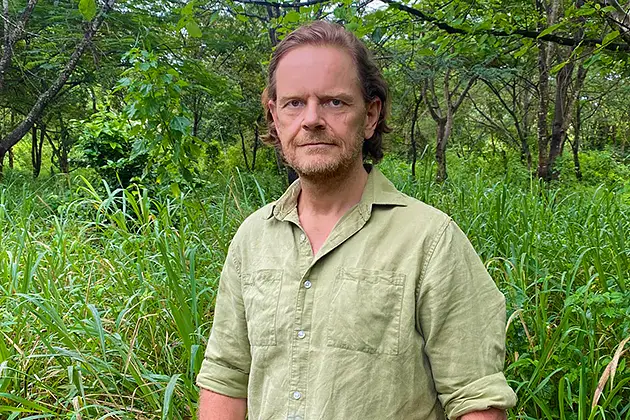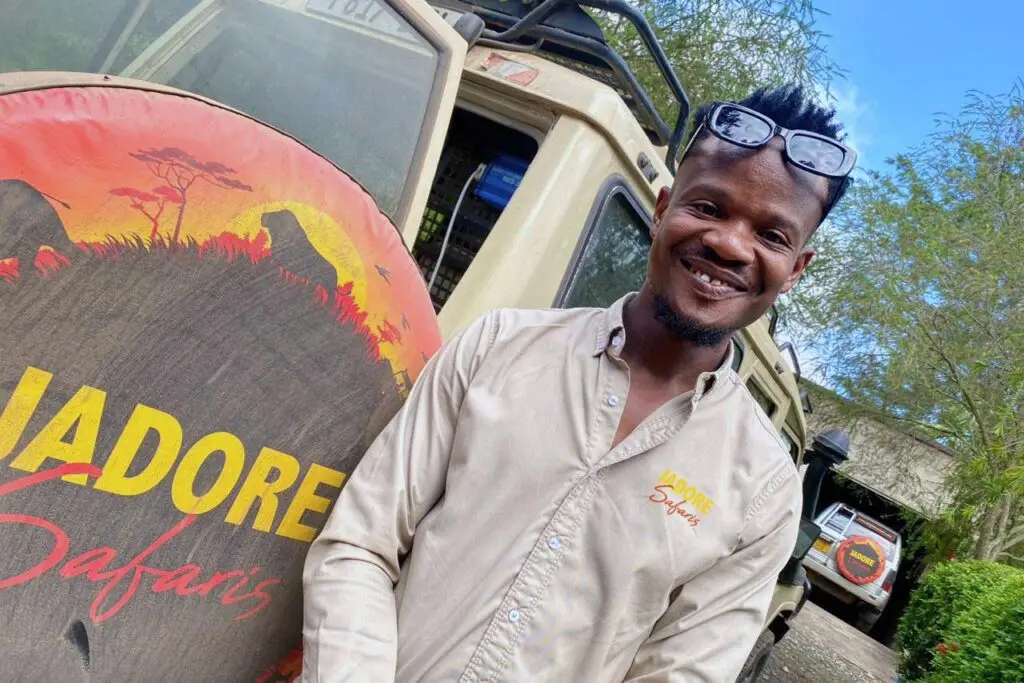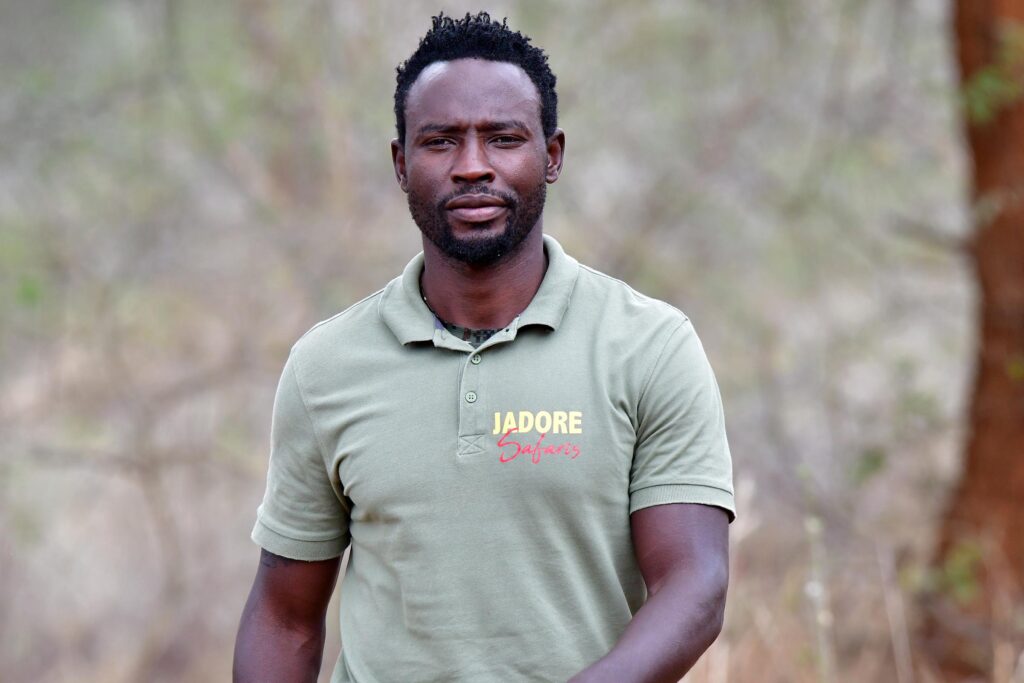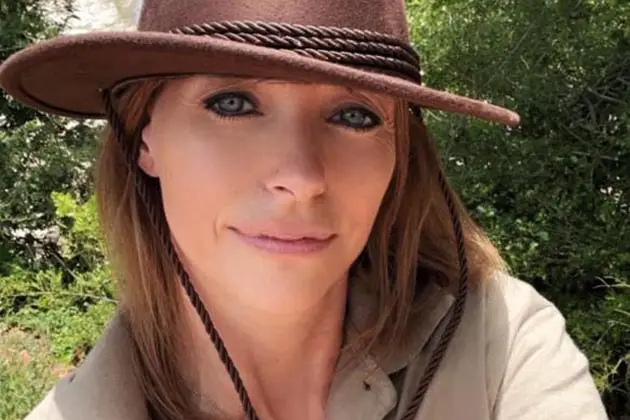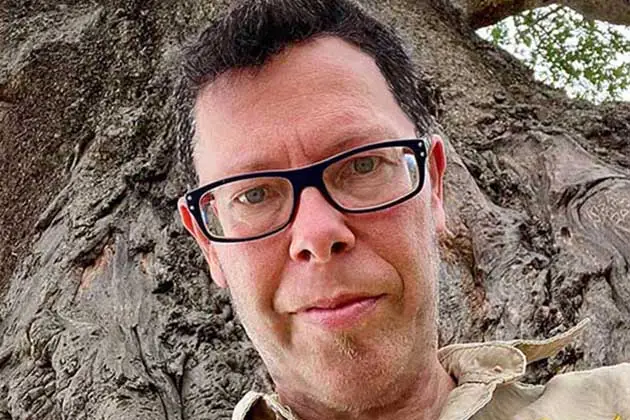When you visit East Africa and explore its largest national parks, you come into contact with colorful traditional communities. These people often wear distinctive traditional clothing and live in houses made of wood, loam or lava sand, often along with their livestock. Take, for example, the Masai tribes, recognizable by their traditional necklaces, earrings and vibrant shúka clothing. These bright colors not only have cultural significance, but also serve to keep predators at bay.
The bright colors of their shúka – red, blue and purple hues – stand out vividly against the landscape and are visible from afar. Whether they are in villages, more modern cities, on the beach or in the vast open spaces. Or where they have been grazing their cattle for centuries, the Masai always stand out.
The Masai are an indigenous ethnic group in northern Tanzania and southern Kenya. They lead a semi-nomadic existence near iconic locations. For example, we are talking about the Ngorongoro ecosystem, the Serengeti National Park, Lake Natron and the Masai Mara National Park. Their presence and culture enrich the experience of travelers in this region.
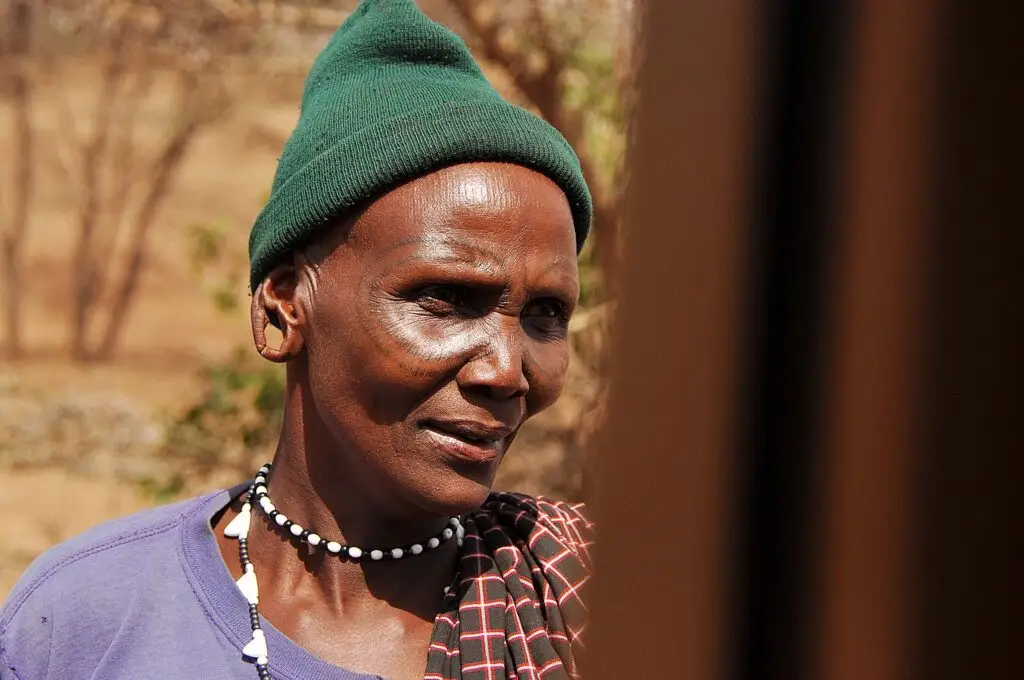
In East Africa, as many as 1 million people live in alternative ways, amid a mosaic of 120 different ethnic groups and tribes.
This alternative lifestyle is characterized by unique features, such as the distinctive bead houses. These cottages, often with only one window and one door, are sometimes constructed from branches of acacia trees. Everything is further mixed with mud and cow dung. It is notable that the Masai, although nomadic in nature, do not tear down their houses when they move to a new location.
This traditional lifestyle reflects a deep connection to nature and a respect for traditions passed down through generations.
When tourists visit, the Masai men gather in one place and form a line.
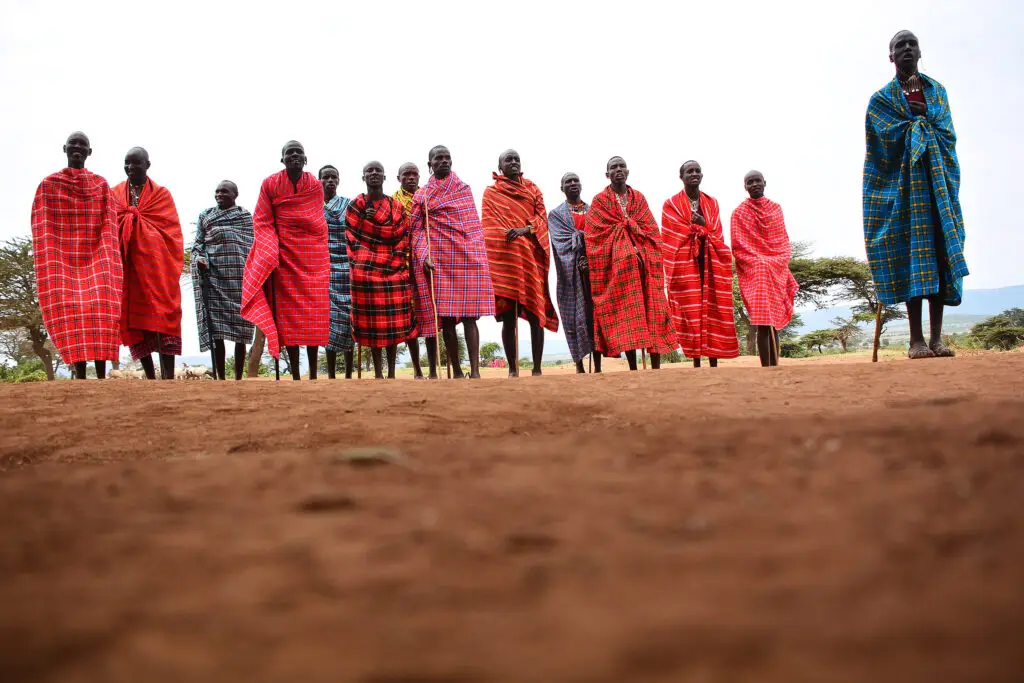
Masai men sing joyfully in their language, without musical accompaniment, and perform a remarkable dance known as adamu or the jumping dance.
Adamu, a traditional dance, symbolizes for young Masai warriors a transition to adulthood. It’s all about showing strength and attracting a bride. The one who jumps the highest makes the biggest impression, thus increasing his chances of finding a partner.
In the Masai’s patriarchal society, having multiple wives is common for men. However, Masai men are expected to have their own livestock at an early age, making their lives challenging.
The Masai usually move to a new place to keep finding fresh water and green grass for their cows.
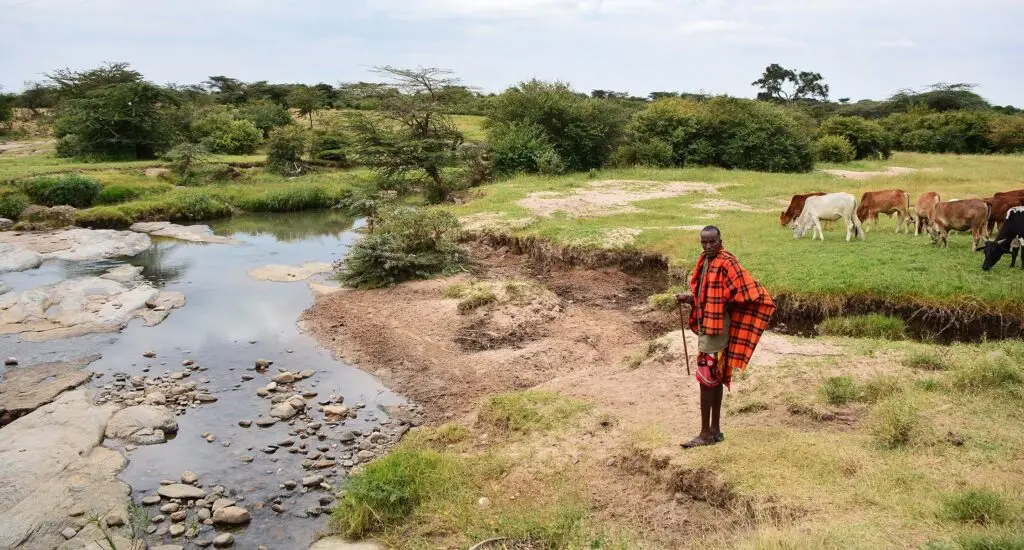
During this great migration, it is the priority of Masai tribesmen to herd their cows to safe grounds. Where they are protected from lions, hyenas and other predators.
The men take the lead in this migration, while the Masai women stay home to care for the children.
An old Masai proverb reads, “Iwapo unataka kwenda haraka, nenda peke yako, iwapo mnataka kwenda mbali, nendeni pamoja,” meaning, “If you want to go fast, go alone. If you want to go far, go together.”
